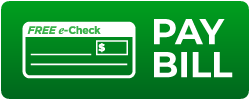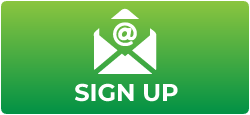Still have questions about secured property taxes? Browse our most
frequently asked questions below.
Expand All
Collapse All
"Secured" property refers to any property that cannot be
moved like homes or land. Proposition 13 limits the tax rate to 1% of
a property's current assessed value, plus any voter-approved bonds and
assessments. The proposition also states that property values cannot
increase more than 2% annually, based on the California Consumer Price
Index. However, property is reassessed whenever it changes owners or
undergoes new construction.
All owners of business, industrial, agricultural and residential
properties must pay property taxes unless exempted by state law.
Lessees must pay property taxes if they are leasing real estate from
an owner whose property is exempt.
The first installment of secured property tax is due on November 1
and becomes delinquent after December 10. The second installment is
due February 1 and becomes delinquent after April 10. If the
delinquent date falls on a weekend or holiday, you have until the
close of the next business day to pay your tax bill.
The annual secured property tax bills are mailed in late September/
early October each year. It is your responsibility to obtain your tax
bill. Failure to receive a bill will not prevent penalties. If you
have not received your tax bill by November 1, you can print a copy by
finding it on our bill search system.
We accept Visa, MasterCard, Discover credit cards, and all American
Express cards via online payment or phone payment. All other debit
cards, dual-use cards, gift cards and prepaid cards are NOT accepted.
A convenience fee of 2.19% will be charged for credit card payments,
regardless of the card brand used for payment. This fee is made up of
transaction costs imposed by the credit card associations and is
passed through to the cardholder.
Although the convenience fee is collected by the County, the fees are
paid to the credit card associations. All merchants that accept credit
cards must pay these fees, but commercial merchants will set the price
of goods and services high enough to absorb the fees. Commercial
merchants typically charge the same price for credit card, check, and
cash payments, despite the higher transactional cost of credit card
payments. The County cannot raise prices to cover these fees and
cannot absorb the cost. The County must collect 100% of the taxes due.
Therefore, in order to offer taxpayers the option of paying by
credit card, a convenience fee must be charged to cover the additional
transaction cost. If you have questions regarding credit card
interchange fees, please contact your issuing bank or the card brand directly.
An e-check payment is an electronic check payment you can make in our
payment system. Paying by e-check is free, and
there are no service charges. Your payment is credited the day you
submit it. If for any reason your e-check payment is returned unpaid
by the bank, your record of payment will be canceled, and you will be
charged a returned check fee of $25. If your e-check payment is
returned by the bank after the delinquent date, you will face late penalties.
An online banking payment is different because it is made through
your bank's online system. When you pay this way, your bank sends us a
paper check, and that payment may take more than 5-10 business days to
reach our office. We will not credit the payment until it is received
by our office, which may be days after you first submitted it. We must
receive your payment before 5 p.m. on the delinquent date to avoid
penalties. If you decide to use your bank's online system, be sure to
schedule the payment well in advance of the delinquent date.





